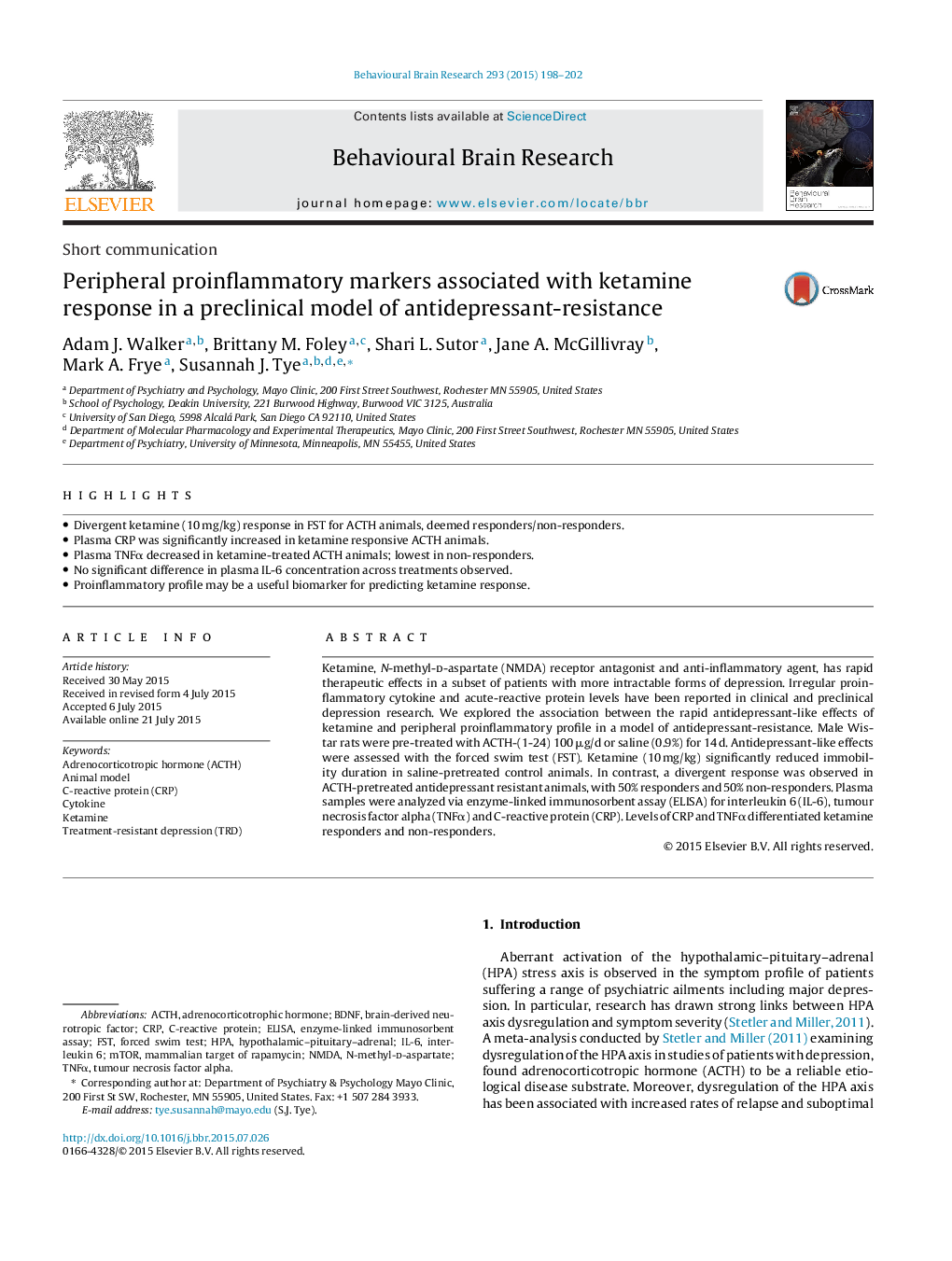| Article ID | Journal | Published Year | Pages | File Type |
|---|---|---|---|---|
| 6256644 | Behavioural Brain Research | 2015 | 5 Pages |
â¢Divergent ketamine (10 mg/kg) response in FST for ACTH animals, deemed responders/non-responders.â¢Plasma CRP was significantly increased in ketamine responsive ACTH animals.â¢Plasma TNFα decreased in ketamine-treated ACTH animals; lowest in non-responders.â¢No significant difference in plasma IL-6 concentration across treatments observed.â¢Proinflammatory profile may be a useful biomarker for predicting ketamine response.
Ketamine, N-methyl-d-aspartate (NMDA) receptor antagonist and anti-inflammatory agent, has rapid therapeutic effects in a subset of patients with more intractable forms of depression. Irregular proinflammatory cytokine and acute-reactive protein levels have been reported in clinical and preclinical depression research. We explored the association between the rapid antidepressant-like effects of ketamine and peripheral proinflammatory profile in a model of antidepressant-resistance. Male Wistar rats were pre-treated with ACTH-(1-24) 100 μg/d or saline (0.9%) for 14 d. Antidepressant-like effects were assessed with the forced swim test (FST). Ketamine (10 mg/kg) significantly reduced immobility duration in saline-pretreated control animals. In contrast, a divergent response was observed in ACTH-pretreated antidepressant resistant animals, with 50% responders and 50% non-responders. Plasma samples were analyzed via enzyme-linked immunosorbent assay (ELISA) for interleukin 6 (IL-6), tumour necrosis factor alpha (TNFα) and C-reactive protein (CRP). Levels of CRP and TNFα differentiated ketamine responders and non-responders.
